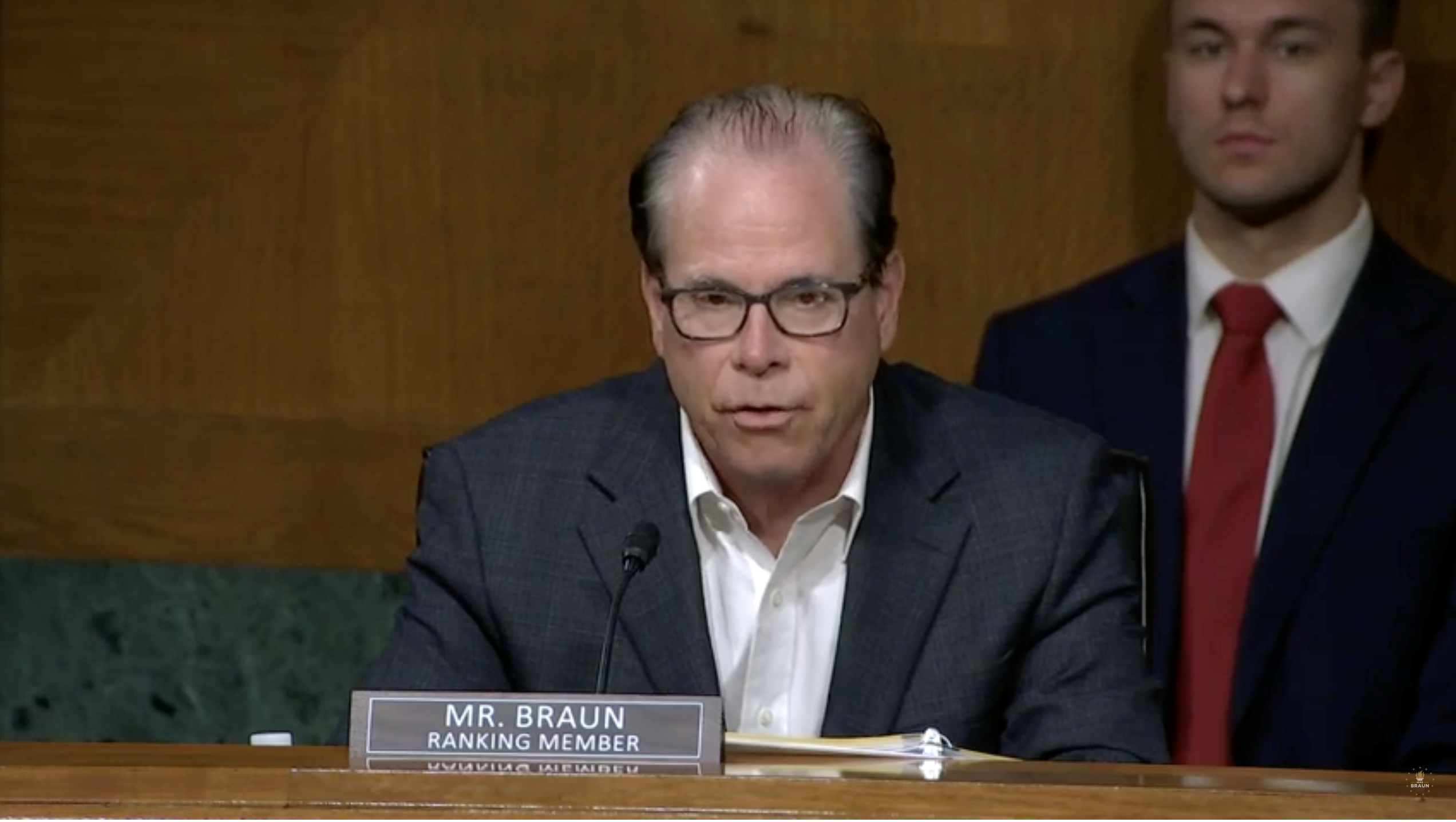Sen. Braun’s opening remarks on emergency preparedness hearing

FOR IMMEDIATE RELEASE
June 15, 2023
Sen. Braun’s opening remarks on emergency preparedness hearing
WASHINGTON—Today, Sen. Mike Braun, Ranking Member of the U.S. Special Committee on Aging, delivered the following opening remarks at the committee’s hearing on nursing homes titled, Before Disaster Strikes: Planning for Older Americans and People with Disabilities in All Phases of Emergencies
Remarks as prepared:
Thank you, Chairman Casey and our witnesses here today.
Disaster can strike anyone, anywhere. Just this April, we had over 20 tornadoes hit the ground in Indiana causing damage and devastation in communities across the state.
I witnessed the disaster area firsthand in Sullivan when I met with families that lost their homes and offered federal assistance to the mayor.
Older adults and people with disabilities were particularly vulnerable in the aftermath.
We must do more to plan ahead before disaster strikes.
When I ran a business, we budgeted for emergencies in advance.
This isn’t something special– small businesses do it to control costs when things go wrong.
Most Americans are practical. They try to save and prepare for the future knowing that not every day will have clear skies.
My home state of Indiana has over two and a half billion in reserves. In contrast, Congress has not passed a budget in nearly 30 years.
We don’t plan ahead for disasters by putting money into a rainy-day fund – but I have a bill to do just that.
Poor budgeting was around long before 9/11, Hurricane Katrina, and COVID-19.
Throwing money at the problem does not stop the course of tornadoes or the spread of viruses. This is an expensive lesson many have had to learn.
We spent over $4 trillion on COVID alone.
We lost more than 1.1 million lives to this disease, a large majority of which were seniors.
Instead of prioritizing the highest risk groups early on, health authorities used a one-size-fits-all approach.
A result of this was an unprecedented amount of fraud. For example, the Department of Labor alone estimates losses due to COVID-related fraud at close to $200 billion.
We cannot prepare and respond to emergencies in the future if our finances are crippled by massive spending today.
The record inflation earlier this year is just a taste of what is to come.
At the heart of all of this is big government. From 2019 to 2023, federal spending grew by 40 percent.
We cannot adopt the model of a panicked crisis governance as the standard response for emergencies.
After 3 years, it took two measures passed by Congress to end the COVID-19 national emergency.
Why should Congress have to fight to end an emergency? We should have to fight to keep one in place.
The American people want to be in charge of their own lives, not bureaucrats.
Last week, I joined Senators Lee, Blumenthal, Crapo, Risch, and Murphy to introduce the ARTICLE ONE Act. This bill would automatically terminate national emergencies if Congress doesn’t renew them.
The federal government should do more to plan ahead for emergencies and change the trajectory of emergencies, especially to protect older Americans and those with disabilities.
I look forward to learning from the lessons of the past two decades and discussing sustainable solutions for the future.
Thank you. I yield to the chair.
###
